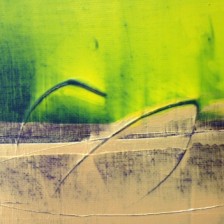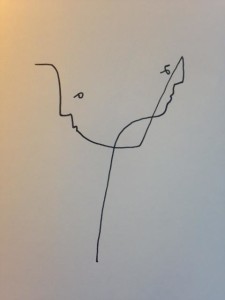I am a Christian. At many times in my life I have been blessed by Muslims and by Islam. I would like to share that blessing. The full series of reflections may be found here.
The second blessing is prayer.
Islam is a religion of deep devotion. Faithful Muslims pray five times a day. These prayers are formal: they happen at established times throughout the day; the person praying washes ritually before prayer; certain words are said each time, in Arabic; and the person kneels and bows in a set pattern and direction. These prayers enact the meaning of the word “Islam”, embodying the person’s submission to God. Muslims may also pray many other times in the course of the day and with less formality, in addition to this regular practice.
I experienced the power of this life of prayer when I lived for a month in the Gaza Strip. I was a student at Wofford College, on a foreign study scholarship to learn about community development from grassroots organizations and their leaders around the world. In Gaza City I spent time in an innovative school for deaf children, a place of dedication and success within a very difficult political and economic context.
While there I spent a great deal of time with one of the school’s teachers, a woman about my age and of exceptional ability. She was a devout Muslim and an energizing, incisive thinker. Her English was excellent, she was loved by her students and colleagues, and she was out to change the world.
Early in my visit, we became friends. But over time, our friendship raised questions. We were misunderstood and criticized for spending too much time together, and my hosts began to experience that criticism too. Lost in a culture very different from my own, uncertain of what to do, I abruptly stopped spending time with her.
This was painful for my friend. I acted sharply, and I caused her hurt. That I had hurt her hurt me, but I did not know what to do about it. And the conflict between us festered.
Into this strain stepped her brother. Late one day the buzzer in my apartment sounded; he had come to visit me. He wanted to talk. I did not know what to expect. Nervous, I let him into my room. We sat uncomfortably across a table from one another.
He was polite but firm. I had offended his sister and his family. They were very unhappy.
Tension in the room rose.
We spoke a long time. He tried to explain to me what I had misunderstood, where I had gone wrong. I had little to offer in response, which only made the disagreement worse. He and his sister and their family were upset; my cultural incompetency came off as obstinate and unhelpful.
As he spoke with me in the darkening apartment, I watched the inevitability of this conflict replay in my mind. Our differences in language, in religion, in culture, in gender, in expectations—nothing matched. No wonder this friendship, brief and tenuous, had fallen apart.
But worst, as our frustration with one another grew, I felt deep-buried biases rise up in me. I could see them clearly even though I did not want to. I thought ugly thoughts. Anger ran with fear inside me. I was alone, far from home, a stranger who had created a problem I could not solve. I had offended everyone around me without meaning to. And this made me mad, and it made me scared–much more than I had realized.
And then the evening call to prayer sounded.
My friend’s brother stopped talking. Then he spoke softly. “I’m sorry to bother,” he said, “but may I pray in your apartment?”
I said yes, and showed him to my bedroom where he could wash and have privacy. I sat at the same table over which we had argued, listening to the muted sound of him kneeling and bowing. He murmured his prayer.
When he had finished, he emerged from my room. His hair and sleeves were still wet from having washed before the prayer.
“Thank you,” he said. And the room was quiet.
The call to prayer had paused our argument. We did not resume it. Something between us had shifted. We exchanged a few words of farewell, and he left into the night.
The conflict between us was not resolved. There was still pain between us. But somehow we were not fighting any more.
If prayer connects us with a power greater than ourselves; if prayer summons us to our best selves; if prayer works change in our hearts;
I can still feel his prayer around me, working within me, almost twenty years since he knelt in my bedroom in Gaza City, half a world away.
And I am grateful.


Leave a Reply